Table of Contents
Have you ever felt like your emotions were a rollercoaster, especially when it comes to friendships? As someone with ADHD, I recently experienced a friendship breakup that felt like a spear piercing through layers of my heart. It was tough, challenging, and threatened to derail all the hard work I’d put into managing my emotions. But here’s the thing: friendship challenges are a universal experience, and for those of us with ADHD, learning how to maintain important friendships can feel like an uphill battle.
Maintaining friendships when you have ADHD isn’t just about remembering birthdays or showing up on time (though those are important too!). It’s about navigating the complex world of emotions that often feel amplified by our neurodivergent brains. Let’s dive into understanding why this happens and how we can work through it to maintain cherished friendships.
Understanding Emotional Dysregulation in ADHD

Emotional dysregulation is like having a faulty thermostat for your feelings. Instead of maintaining a comfortable emotional temperature, you might experience sudden intense heat (anger or excitement) or unexpected cold snaps (sadness or withdrawal). For those of us with ADHD, this isn’t just an occasional occurrence – it’s often a daily struggle, influencing how we maintain our friendships.
Emotional dysregulation in ADHD manifests as:
- Intense emotional reactions that seem disproportionate to the situation, challenging our ability to maintain friendships
- Difficulty calming down once upset, making it harder to maintain friendships
- Rapid mood swings
- Impulsive emotional outbursts
How Does It Specifically Affect People with ADHD?
For individuals with ADHD, emotional dysregulation is more than just a personality quirk – it’s a core feature of our neurodiversity. Our brains are wired differently, affecting not only attention and focus, but also how we process and express emotions.ADHD and emotion regulation are intrinsically linked.
The same brain areas responsible for executive functions (like planning and impulse control) also play a crucial role in managing emotions. When these areas don’t function typically, as in ADHD, it can lead to:
- Heightened emotional sensitivity
- Difficulty filtering out emotional stimuli
- Challenges in pausing to think before reacting emotionally
Impact of Emotional Dysregulation on Relationships
ADHD emotional dysregulation in relationships can create a perfect storm of misunderstandings and hurt feelings. When emotions run high, it’s easy to say or do things we later regret. For friends who don’t understand ADHD, our reactions might seem unpredictable or even hurtful.
The impact can include:
- Frequent conflicts due to emotional outbursts
- Misinterpretation of our intentions by friends
- Difficulty maintaining long-term friendships
- Feeling overwhelmed in social situations
Understanding these challenges is the first step in learning how to maintain friendships. It’s important to remember that while ADHD may make emotional regulation more difficult, it doesn’t make meaningful friendships impossible.
In my own experience, the recent friendship breakup I went through felt particularly devastating because of these emotional regulation challenges. It was as if all the work I’d done to manage my emotions was suddenly invalidated. But here’s what I’ve learned: these experiences, while painful, don’t negate our progress. Instead, they offer opportunities for growth and self-reflection.
The ADHD Friendship Challenge
Navigating friendships can feel like traversing a complex maze for those of us with ADHD. While we often crave deep connections, learning how to maintain friendships can be a significant challenge. Let’s explore why this is and how emotional dysregulation plays a crucial role in our relationship dynamics.
Why Do People with ADHD Struggle to Maintain Friendships?
For individuals with ADHD, maintaining friendships isn’t just about being a good friend – it’s about overcoming neurological hurdles that can make social interactions particularly challenging.
Here’s why:
- Inconsistent attention: Our ability to focus can fluctuate wildly, making it difficult to consistently engage in conversations or remember important details about our friends’ lives.
- Time blindness: We may struggle to gauge the passage of time, leading to chronic lateness or forgetting to stay in touch regularly.
- Impulsivity: Sometimes we speak or act without thinking, potentially saying hurtful things or making decisions that strain friendships.
- Emotional intensity: Our emotions can be overwhelming, which might be confusing or exhausting for friends who don’t understand ADHD and emotion regulation challenges.
- Executive function difficulties: Planning get-togethers, remembering birthdays, or following through on promises can be exceptionally hard for us.
Common Obstacles in ADHD Relationships
When it comes to ADHD emotional dysregulation in relationships, several obstacles can arise:
- Misunderstandings: Our friends might misinterpret our behaviors, mistaking ADHD symptoms for a lack of care or interest.
- Overwhelm: Social situations can be overstimulating, leading to burnout or the need to withdraw suddenly.
- Inconsistency: Our energy levels and ability to engage can vary greatly, which might be perceived as hot-and-cold behavior.
- Difficulty with conflict resolution: Emotional dysregulation can make it challenging to address issues calmly and productively.
- Rejection Sensitive Dysphoria (RSD): Many with ADHD experience intense emotional pain at the perception of rejection, which can lead to avoiding social situations or overreacting to minor slights.
The Role of Emotional Dysregulation in Friendship Difficulties
Emotional dysregulation ADHD is a key player in friendship challenges. Here’s how it impacts our ability to maintain friendships:
- Intensity of reactions: When emotions run high, we might react more strongly than the situation warrants, potentially pushing friends away.
- Difficulty in emotional transitions: Shifting from one emotional state to another can be challenging, making it hard to adapt to the changing dynamics of social situations.
- Emotional contagion: We might absorb the emotions of those around us, leading to emotional exhaustion in social settings.
- Impulsive emotional expressions: Blurting out thoughts or feelings without filter can lead to awkward or hurtful moments in friendships.
- Emotional flooding: When overwhelmed, we might shut down or lash out, making it difficult for friends to understand or connect with us.
Remember, having ADHD doesn’t mean we’re destined for friendship failures. Many of us form deep, lasting bonds. The key is to understand our unique challenges and work on strategies to overcome them.
Strategies for Maintaining Friendships with ADHD

Learning how to maintain friendships when you have ADHD can feel like a Herculean task, especially when emotions run high. But fear not! With the right strategies, we can navigate the choppy waters of ADHD emotional dysregulation in relationships and build lasting connections.
Let’s dive into some practical techniques that can help us manage our emotions and strengthen our friendships.
1. Develop Self-Awareness
The first step in managing emotional dysregulation ADHD is understanding ourselves better.
Recognize emotional triggers:
- Keep a journal to track situations that spark intense emotions
- Notice patterns in your reactions to different social scenarios
- Identify early warning signs of emotional overwhelm
Understand your unique ADHD symptoms:
- Reflect on how your ADHD manifests in social situations
- Consider how symptoms like inattention or impulsivity affect your friendships
- Acknowledge that your experience with ADHD is unique to you
2. Communicate Openly with Friends
Open communication is key to maintaining friendships, especially when dealing with ADHD and emotion regulation challenges.
Explain ADHD and its impact on relationships:
- Share resources about ADHD with close friends
- Discuss how ADHD affects your emotions and behaviors
- Help friends understand that your actions aren’t personal
Share your challenges and needs:
- Be honest about your struggles with emotional regulation
- Express what you need from your friends during difficult times
- Ask for patience and understanding when you’re working through intense emotions
Remember, true friends will appreciate your honesty and want to support you.
3. Practice Emotion Regulation Techniques

Managing emotions is crucial for maintaining friendships. Here are some techniques to help with ADHD emotional dysregulation in relationships:
Mindfulness and meditation:
- Practice daily mindfulness to increase emotional awareness
- Use guided meditations focused on emotion regulation
- Try apps like Headspace or Calm for structured mindfulness exercises
Deep breathing exercises:
- Learn and practice the 4-7-8 breathing technique
- Use box breathing during stressful social situations
- Incorporate deep breathing into your daily routine
Cognitive restructuring:
- Challenge negative thought patterns about friendships
- Reframe situations to find more balanced perspectives
- Practice self-compassion when dealing with friendship challenges
These techniques can help us respond to emotional situations more calmly and thoughtfully.
4. Establish Friendship Routines

Creating structure can help us overcome the challenges of maintaining friendships with ADHD.
Set reminders for regular check-ins:
- Use a calendar app to schedule regular friend catch-ups
- Set phone reminders to text or call friends
- Create a weekly “friendship maintenance” time in your schedule
Create a system for remembering important dates:
- Use a digital calendar to track birthdays and anniversaries
- Set up automated e-cards or reminders for special occasions
- Create a friendship journal to note important events in friends’ lives
5. Embrace Your ADHD Traits Positively
Our ADHD traits can actually be superpowers in friendships when channeled effectively.
Use hyperfocus to strengthen connections:
- Dive deep into shared interests with friends
- Plan elaborate, focused activities around mutual passions
- Use your ability to concentrate intensely to be a great listener when friends need support
Channel creativity into unique friendship experiences:
- Organize unconventional outings that showcase your imaginative side
- Use your out-of-the-box thinking to solve friends’ problems in innovative ways
- Create personalized, creative gifts that demonstrate how much you value your friendships
Remember, learning how to maintain friendships is a journey, not a destination. It’s okay to have setbacks or experience friendship breakups along the way. These experiences don’t invalidate the hard work you’ve put into managing your emotions and building relationships. Instead, they’re opportunities for growth and self-reflection.
How to Heal from Friendship Breakups?
Friendship breakups can be particularly challenging for those of us with ADHD, especially when emotional dysregulation is a factor. However, these experiences can also be opportunities for growth and learning how to maintain friendships more effectively in the future.
Let’s explore some strategies for healing and moving forward.
Coping Strategies for Emotional Pain

When dealing with the emotional aftermath of a friendship breakup, it’s crucial to acknowledge and process your feelings. Here are some coping strategies that can help:
- Practice self-compassion: Be kind to yourself during this difficult time. Remember that emotional dysregulation in ADHD can intensify feelings of loss and rejection. It’s okay to feel hurt, and it doesn’t reflect on your worth as a person or friend.
- Engage in mindfulness: Mindfulness techniques can help manage the intense emotions associated with ADHD and friendship loss. Try deep breathing exercises or guided meditations to center yourself when feelings become overwhelming.
- Express your emotions: Find healthy outlets for your feelings, such as journaling, art, or talking to a therapist. These activities can help process emotions and reduce the intensity of ADHD emotional dysregulation.
- Maintain routine: Stick to your usual schedule as much as possible. Structure can be comforting during times of emotional turmoil, especially for those with ADHD.
- Seek support: Reach out to other friends, family, or support groups. Sharing your experience with others who understand ADHD and emotion regulation challenges can be incredibly validating and healing.
Learning from Past Experiences
Every friendship, even those that end, offers valuable lessons. Here’s how to gain insights from your experiences:
- Reflect objectively: Once the initial pain subsides, try to look at the friendship objectively. What worked well? What challenges did you face? This reflection can provide insights into your friendship patterns and areas for growth.
- Identify triggers: Pay attention to situations or behaviors that may have triggered emotional dysregulation in the friendship. Understanding these triggers can help you manage similar situations better in the future.
- Recognize your role: While it’s important not to blame yourself, honestly assessing your part in the friendship’s dynamics can be enlightening. Did ADHD symptoms like impulsivity or forgetfulness play a role? This awareness can guide your efforts in future relationships.
- Appreciate the positive: Acknowledge the good times and what you learned from the friendship. This gratitude can help balance negative emotions and provide perspective.
Building Resilience for Future Relationships
Learning how to maintain friendships after a breakup involves building emotional resilience. Here are strategies to strengthen your ability to form and sustain healthy friendships:
- Develop emotional regulation skills: Work on techniques to manage ADHD emotional dysregulation. This might include cognitive-behavioral therapy, mindfulness practices, or medication under professional guidance.
- Communicate openly: Practice expressing your needs and feelings clearly in relationships. Let future friends know about your ADHD and how it might affect your interactions.
- Set realistic expectations: Understand that all friendships have ups and downs. Having realistic expectations can help you navigate challenges without becoming overwhelmed.
- Practice active listening: Enhance your ability to be present and attentive in conversations. This skill can greatly improve the quality of your friendships.
- Cultivate self-awareness: Regularly check in with yourself about your emotions and behaviors in friendships. This awareness can help you catch potential issues early and address them proactively.
- Seek professional support: Consider working with a therapist who specializes in ADHD. They can provide tailored strategies for managing ADHD emotional dysregulation in relationships.
Remember, learning how to maintain friendships is an ongoing process, especially when dealing with ADHD and emotional regulation challenges. Each experience, even painful ones, offers an opportunity for growth and self-improvement.
Healing from a friendship breakup takes time, and it’s okay to grieve the loss. Be patient with yourself as you navigate this process. With each step forward, you’re not only healing but also developing valuable skills that will serve you well in all your relationships, both present and future.
Final Thoughts
Navigating friendships with ADHD can feel like riding an emotional rollercoaster, but it’s a journey worth taking. As we’ve explored, learning how to maintain friendships while managing emotional dysregulation ADHD is challenging yet entirely possible.
Remember, healing and growth aren’t linear processes. It’s perfectly normal to have days when you feel you’ve taken two steps back after one step forward. ADHD emotional dysregulation in relationships can make this journey even more complex, but each experience – even the difficult ones – offers valuable lessons.
As you work on managing ADHD and emotion regulation, be kind to yourself. Cultivate self-compassion and persist in your efforts to build and maintain authentic connections. These genuine friendships, built on understanding and acceptance, are invaluable.
In the end, your ability to form deep, meaningful relationships isn’t defined by your ADHD, but by your willingness to show up authentically, communicate openly, and continuously work on yourself. Embrace the unique perspective your ADHD brings to friendships, and remember – you are worthy of rich, fulfilling connections, just as you are.


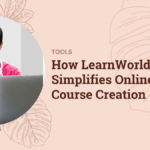
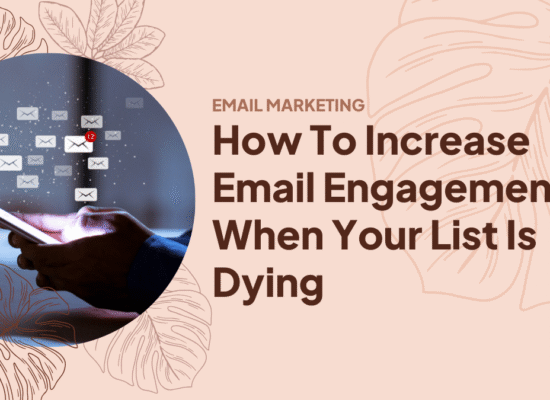
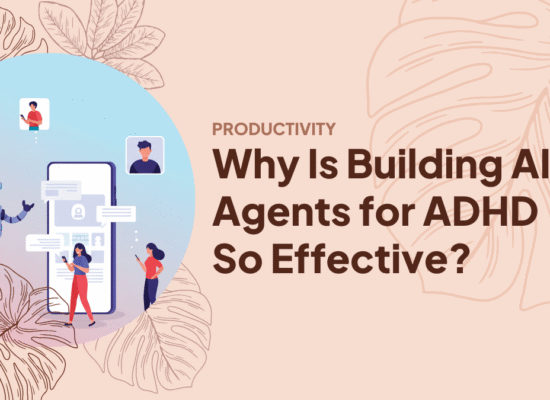
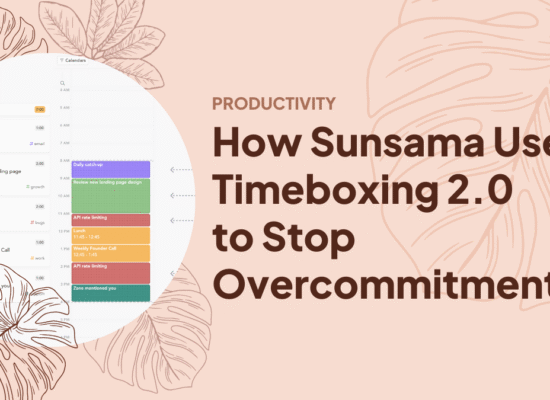
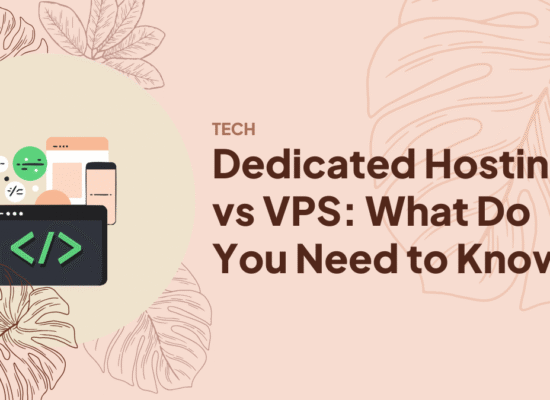
No Comment! Be the first one.